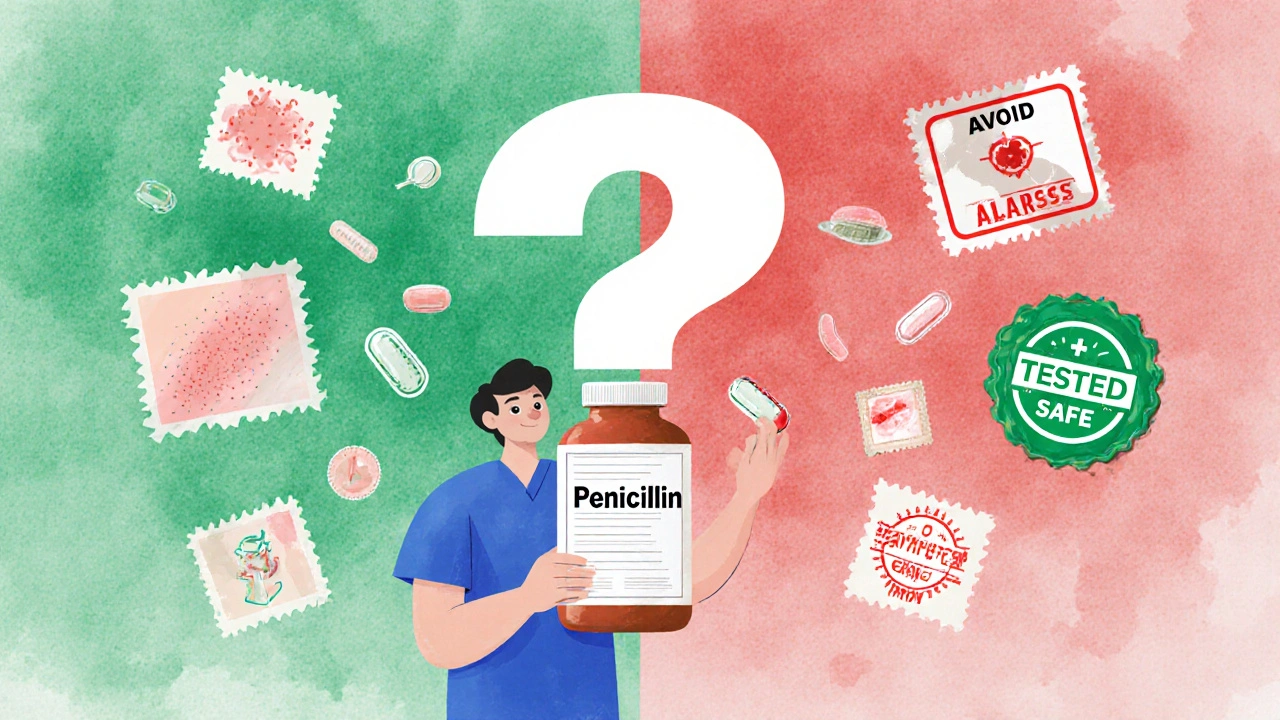Severe Drug Reaction: Signs, Causes, and What to Do Next
When your body reacts badly to a medication, it’s not always just a rash or upset stomach. A severe drug reaction, a dangerous immune or systemic response to a medication that can threaten life. Also known as drug hypersensitivity, it can strike suddenly—even if you’ve taken the same drug before without issue. This isn’t just a side effect. It’s a full-blown emergency that needs immediate attention.
Common triggers include antibiotics like penicillin, NSAIDs like ibuprofen, seizure meds like phenytoin, and even some painkillers or chemotherapy drugs. These aren’t rare cases—hundreds of thousands of people in the U.S. alone end up in the ER each year because of unexpected drug reactions. The body doesn’t always warn you. One day you feel fine. The next, your skin is blistering, your throat is closing, or your organs are failing. That’s why knowing the red flags matters more than you think.
Some reactions, like anaphylaxis, a rapid, whole-body allergic response that can cause breathing failure and shock, happen within minutes. Others, like Stevens-Johnson syndrome, a severe skin reaction often triggered by medications that causes painful blistering and peeling, take days to develop. Both are medical emergencies. If you notice unexplained fever, swelling, hives, blistering skin, or trouble breathing after starting a new drug, don’t wait. Call 911 or get to a hospital immediately.
What makes this even trickier is that some reactions look like infections or other illnesses. A rash might be mistaken for chickenpox. Fatigue and nausea could be blamed on the flu. But if it started after a new pill, shot, or IV, it’s likely drug-related. Doctors often miss this connection—especially if the patient doesn’t mention the medication or thinks it’s "safe" because it’s over-the-counter. That’s why keeping a full list of everything you’ve taken, including supplements and herbal products, is critical.
Not everyone who takes a drug will react. But if you’ve had one severe reaction before, you’re at higher risk for another—even with a different drug in the same class. That’s why allergy testing and genetic screening (like HLA-B*15:02 for carbamazepine) are becoming more common. Some people carry genes that make them far more likely to have a dangerous reaction to certain meds. Knowing your risk can save your life.
And here’s the thing: you don’t have to live in fear. But you do need to be informed. If you’ve ever had a bad reaction, keep a medical alert card or bracelet. Tell every doctor, pharmacist, and nurse before they give you anything. Ask: "Could this interact with my history?" Don’t assume they know. And if you’re ever unsure—skip it. Wait. Call your provider. Better safe than sorry.
The posts below cover real cases, hidden triggers, and practical steps you can take to protect yourself. From how to recognize early warning signs to which medications are most likely to cause trouble, you’ll find clear, no-fluff advice from people who’ve been there. Whether you’re managing a chronic condition, caring for someone on multiple meds, or just want to avoid a hospital visit, this collection gives you the facts you need—before it’s too late.
When to Avoid a Medication Family After a Severe Drug Reaction
Not every severe drug reaction means avoiding an entire medication family. Learn when cross-reactivity is real, when it’s not, and how to get tested to avoid unnecessary restrictions on your treatment options.
Read more
